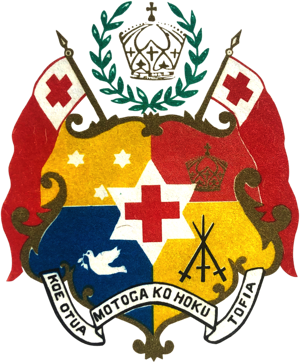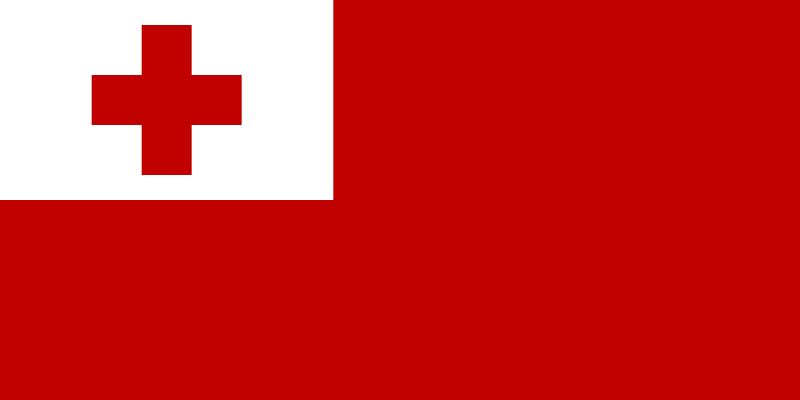1. DIGITAL GOVERNMENT STRATEGIC FRAMEWORK (2019-2024)
Please click the link below to download a text version of the above framework
Digital Government Strategic Framework (2019-2024)
Technology has changed the way people communicate, work, and interact. Whether it is through access to Government services via the internet, interactions via social media and mobile technologies, or receiving aid when requested, technology is being employed as an enabler to build and to strengthen services delivery. The DGSF vision is to create a responsive and robust Government’s decision making through change management focused on improving the efficiency and effectiveness of Government services thus enabling a competitive business environment and to create sustainable development opportunities for the people of Tonga.
2. TONGA ENTERPRISE ARCHITECTURE FRAMEWORK
Please click the link below to download a text version of the above framework
Tonga Enterprise Architecture Framework
The Tonga Enterprise Architecture Framework (TEAF) supports the vision “A more progressive Tonga supporting higher quality of life for all” and the goals of the Government of Tonga (GoT) as fixed in the Tongan Strategic Development Framework 2015-2025 (TSDF).[1] One of the five pillars of the TSDF is dedicated to the use of reliable, safe, and affordable information and communication technology.
The first Tonga Digital Government Strategic Framework (TDGSF) promotes the use of ICT within government ministries and agencies. This promotion includes an aggressive transition from paper-based transactions to digital government. TDGSF sets the following objectives:
- Strengthen and build governance through change management
- Implement digital government across all government agencies and activities
- Advance digital inclusion for all
- Promote data sharing and a service-oriented information systems architecture
- Enhance public engagement
3. TONGA INTEROPERABILITY FRAMEWORK
Please click the link below to download a text version of the above framework
Tonga Interoperability Framework
Interoperability is the ability of making systems and organizations operate together (inter-operate). The objective of the Tongan Interoperability Framework, hereinafter: TIF, is to outline the main principles and general guidelines enabling the development and implementation of electronic services for citizens, businesses, and public administrations in the Government of Tonga.
Interoperability is both a prerequisite for and a facilitator of the efficient delivery of public services. The interoperability framework aims to improve:
- cooperation between public administrations aiming at the establishment of public services,
- information exchange between public administrations to fulfil legal requirements or political commitments, sharing and reusing information among public administrations to increase administrative efficiency and reduce administrative burden on citizens and businesses.
4. TONGA DATA EXCHANGE POLICY & FRAMEWORK
Please click the link below to download a text version of the above framework
Tonga Data Exchange Policy & Framework
The Data Exchange Policy and Framework is applicable to all public bodies in Tonga. It lays out the basic conditions for building a Secure Data Exchange (SDE) ecosystem at all levels of the public bodies. This document is addressed to all those involved in defining, designing, developing, and delivering public services in Tonga.
5. NATIONAL CYBERSECURITY FRAMEWORK
Please click the link below to download a text version of the above framework
National Cybersecurity Framework
The National Cybersecurity Framework establishes objectives to help guide the often complex requirements to develop and safely manage the data and information systems used for improving government services. Cybersecurity is closely linked to the architecture and frameworks required within the DGSP, such as the Tonga Enterprise Architecture Framework, and the information exchange model that will help facilitate the integration and exchange of data across agencies.
The Cybersecurity Framework does not prescribe any technologies, individual standards, or international best practices – a multitude of aspects must be taken into consideration when making specific policy or regulatory decisions which will impact the implementation and operations of ICTs in Tonga. The current framework provides a system of stakeholder requirements, which is transformed into national and organizational objectives and outcomes. The Implementation Plan defines key success factors, or compliance metrics, which need to be officially set by the key stakeholders and parliament, and followed by all MDAs when implementing their ICT activities.
6. CLOUD FIRST POLICY
Please click the link below to download a text version of the above framework
Tonga Cloud First Policy
This document sets out general guiding principles for a “cloud first” approach for government ministries and agencies to consider in adopting cloud computing solutions as a primary part of their information technology planning and procurement.
The goals of the Cloud first approach are:
- Reducing the cost of government ICT by eliminating duplication of solutions and fragmentation in the technology environment;
- Increasing security of the systems by providing clear guidelines for selecting the hosting solution in accordance with data security requirements;
- Increasing productivity and agility off the ICT solutions in the public sector;
- Achieving business continuity by standardizing infrastructure management;
- Providing a clear model of engagement with the private sector for hosting the public sector’s ICT solutions.
In order to achieve this, all government agencies of Tonga affected by this policy will evaluate cloud-based services when undertaking all ICT procurements. The decision on the appropriate ICT delivery model will be based on an assessment of each application, incorporating fitment of purpose, cost benefit analysis and achieving value for money over the life of the investment.

